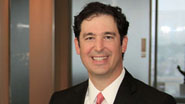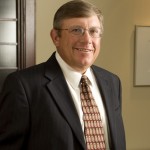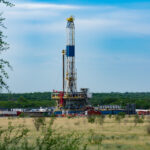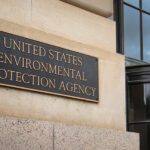Just doing things right may not be enough: legal experts discuss changes to SEC reporting expectations for energy companies and recent trends in EPA investigations and enforcement actions
Haynes and Boone LLP’s Denver office hosted a seminar this week that featured a slate of high-powered presenters, some of whom had spent years as attorneys at the SEC and EPA before joining Haynes and Boone. The program was called “Government Enforcement in the Energy Industry.” The information the panelists presented focused on current trends in securities and environmental investigation and enforcement actions upon energy companies by some of the most powerful agencies of the federal government–the Securities and Exchange Commission (SEC), the Environmental Protection Agency (EPA), and the Department of Justice (DOJ).
SEC Enforcement

Alan Talesnick, specialist in SEC investigations and partner at Haynes and Boone-Denver, said that the Securities and Exchange Commission is beginning to push for expanded disclosures based on today’s lower commodities prices, in addition to the 12-month average price specified in the current rule. He said the SEC is returning comments asking companies to show the both the average commodity price and the year-end price, and they are asking companies to disclose estimated future net cash flows based on the lower commodities prices.
“They are asking people to make disclosures outside of the present rules. They want to know how continued lower prices will affect the business going forward. Just doing things right may not be enough,” Talesnick said.
He said the SEC wants to know the effect of today’s lower commodities prices on companies’ future plans, the effect of lower prices on undeveloped reserves, on drilling plans, on your borrowing base, on your credit limit, on covenants of your loan agreements, on your access to capital. They are asking when do your hedges expire? They want the MD&A to include a discussion on what the impact will be of the hedges rolling off.

Kit Addleman, also a specialist in SEC investigations and a partner at Haynes and Boone-Dallas, made reference to examples where the SEC investigated a company for delaying an impairment due to a known loss of customers on which previously higher revenue projections were based. Hiding liabilities will be a big issue in financial statements, the panel said. Panelists discussed the impact of the JOBS Rule and Rule 506C offerings.
On the topic of compliance with anti-corruption laws, the panel flagged major risk areas as compliance with foreign anti-corruption laws, insufficient internal controls, successor liability following M&A transactions, intermediaries and third parties, gifts, meals and entertainment. The panel discussed the the Foreign Corrupt Practices Act and detailed some recent enforcement actions in the oil and gas space:
- BHP Billiton ($25 million penalty)
- Layne Christensen ($4.76 million disgorgement and interest plus $375,000 penalty)
- Weatherford International ($67 million penalty to the SEC; $87 million penalty to DOJ; $100 million fines to three other agencies)
- Total, S.A. ($153 million in disgorgement to the SEC; $245 .2 million penalty to DOJ; Deferred Prosecution Agreement)
- Parker Drilling Co. ($3.05 million disgorgement to the SEC plus $1.04 million interest; $11.76 million penalty to DOJ)
The panelists said the FCPA requires issuers to adopt accounting controls that “provide reasonable assurances that transactions are executed in accordance with management’s authorization,” which they said the enforcement agencies interpret to mean requiring companies to adopt robust anti-corruption compliance programs, and put in place controls sufficient to “prevent and detect” violations.

Houston Haynes and Boone partner Steve Corso discussed commodities rules enforcement.
Another area of concern centered on cybersecurity risks. The panel mentioned the need for companies to identify risk areas and cyber protections, and provide information for investors upon a breach. The goal was to have systems in place to prevent a breach and a plan of action in the event of a breach occurring.
Environmental Enforcement



Another panel of experts looked at the EPA’s focus on the oil and gas industry to locate sources of methane and other emissions in oil and gas operations. They said the EPA has launched a national enforcement initiative for compliance by the energy extraction industry. Panel members included Haynes and Boone partners Mary Mendoza, Suzanne Murray and John Fognani, from Austin, Dallas and Denver, respectively.
The panel said that enforcements on oil and gas facilities have more than tripled since 2011. The panel said the EPA favors gathering data with “next generation technologies” including infrared cameras at oil and gas sites to start an enforcement. One of the presentation slides entitled “Love Thy Neighbor” led to a discussion of “where is the agency getting its information?” The answer it turns out is neighbors near oil and gas sites, which fits the agency’s m.o. of doing more with less. One panel member recalled a conversation with an EPA official who indicated that the agency definitely takes into account how the neighbors feel during its investigations. The agency calls that “citizen data” and it definitely does consider this in enforcement cases. They are mining the data that neighbors record, the panelists said.
The panel said the EPA sets environmental initiatives every three years, for what it defines as “national priority areas,” of which the agency now has one to investigate oil and gas operators’ compliance with the Clean Air Act. The panel said the EPA likes to do what it terms “global settlement.” This refers to where the agency will focus an investigation on one site of a company’s operations, and they will then look to enforce remedies for whatever the conditions that were found to be at that one site on all of the company’s locations.
The panel said the EPA likes to push new technologies on operators, “to ask folks to do things that aren’t technically required.” The example given was encouraging a company to use technology products for monitoring and recording at its sites.
The panel mentioned one oil and gas operator whose condensate storage tanks in the D-J basin were investigated, and the agency found fault with the operator resulting in a settlement.
The settlement was described by the EPA in its press release as follows:
“The settlement resolves claims that Noble failed to adequately design, size, operate and maintain vapor control systems on its controlled condensate storage tanks, resulting in emissions of volatile organic compounds (VOCs).
“As part of the settlement, Noble will spend an estimated $60 million on system upgrades, monitoring and inspections to reduce emissions, in addition to $4.5 million to fund environmental mitigation projects, $4 million on supplemental environmental projects, and a $4.95 million civil penalty.”
The Haynes and Boone panel called the Noble case “a page out of the [government’s] playbook.” The quote below from the EPA press release and the paragraph following it illustrate the point made by the panel:
“This first-of-its-kind settlement takes a basin-wide, systematic approach to address oil and gas emissions,” said Assistant Attorney General John C. Cruden for DOJ’s Environment and Natural Resources Division. “Our nation’s energy security and independence requires that oil and gas production be done safely, responsibly, and lawfully. We look forward to continuing to work with states and the oil and gas industry to ensure that oil and gas emissions are minimized nationwide.”
“Under the settlement lodged today in Colorado, Noble will perform engineering evaluations and make modifications to ensure that its vapor control systems are properly designed and sized to capture and control VOC emissions. Noble will use an infrared camera to inspect these systems, both initially to confirm capture and control of VOCs and periodically to verify proper upkeep and operation. These activities will be audited by a third-party, and Noble will develop and post reports summarizing its engineering evaluations and modifications online. Additionally, Noble will install monitors at certain storage tanks to detect tank pressure increases that may indicate possible emission releases. Noble has also committed to evaluate the condition of pressure relief valves, thief hatches, and mountings and gaskets on each storage tank and address any evidence of VOC emissions from those devices.”


Haynes and Boone Dallas partner Ron Breaux and senior counsel Larry Gaydos discussed the government’s approach to antitrust investigations, including criminal penalties, crisis response and the government’s first-come-first-served corporate leniency policy.







